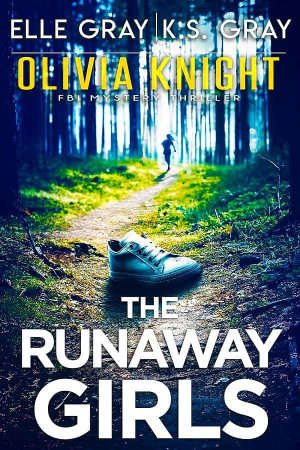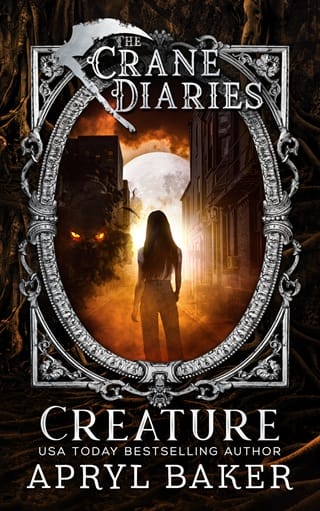10. Winter
Chapter 10
Winter
“Oh my God! That was incredible! That was the best wedding present in the history of presents!” Dina darts toward me with her arms spread, squealing with delight as she pulls me into her embrace. “You sing like an angel.” She wipes a tear and sways from side to side. “You’ll never know what it means to me having you here.”
I step back from the embrace, feeling the warmth of the moment lingering between us. Dina’s lips curl in a grateful smile as the room buzzes with the laughter of guests and former classmates. Within the crowd, I see Orson, his gaze trained intently on me. His odd expression makes me nervous. I don’t know what he wants to talk about, but I have a hunch I don’t want to hear it.
I turn away, smoothing down my dress and looking for any excuse to keep busy. I help adjust chairs, sign autographs for waitstaff, and even tidy up stray confetti from Dina’s hair—anything to avoid his stare, which remains pinned on me like an arrow.
Looking away feels like the only viable escape. I focus on the small group gathered around our table, laughing at an old, shared joke that no longer makes sense to me.
"He’s staring," Dina murmurs under her breath as I slide into an empty seat beside a friend I haven't seen in years. "He’s not even trying to hide it."
"Who? Orson? He’s probably drunk," I whisper, attempting to downplay his attention. I don’t need Dina to get any ideas about playing matchmaker.
She always believed we were meant to be together and may take matters into her own hands. "You must miss him a little bit. The two of you were really something back in the day," Dina says wistfully, ignoring my discomfort.
"We were something, alright," I concede with a noncommittal shrug, sipping my drink and hoping to avoid further commentary. There have been days when I’ve wondered what might have happened if we’d met as mature adults, established in our careers, living in the same city, and capable of understanding that love was more than butterflies and rainbows. Maybe things wouldn’t have grown so toxic and fallen apart halfway through college. But that’s not what happened, and there’s no need to dwell on sentimentalities.
The evening drifts on like a slow dance that never ends. Laughter echoes off walls hung with fairy lights and draped with ivy. Every corner of the room sparkles under the rustic chandeliers, yet there's an undercurrent of anger tugging at me. This gathering is supposed to be a joyous occasion, and I feel plagued by visions of marching across the room and strangling that gorgeous man until he wipes that stupid grin off his face. He’s always had the sexiest smile. In the movie business, he’s known for it. It’s his calling card. But I fell prey to it long before his legions of fangirls.
I find myself watching Orson occasionally. Each time our eyes meet accidentally on my end—I'm reminded why distances exist and some bridges burn to ashes. A part of me may miss him, and there’s a high probability the void in my heart will never truly disappear, but eight years of hostile indifference and deliberate avoidance is far too long to overcome. Our love story ended long ago, and I'm confident there won’t be any sequels.
As the party begins to thin out with goodbyes and well-wishes, I stand alone for a moment on the fringes of fading music and dimming lights. With a wide smile on my face, I watch Chelsea and Owen cheek to cheek, swaying on the makeshift dance floor, grateful that two dear friends have found happiness. I’m entirely too enthralled to notice a presence beside me until a voice breaks my reverie.
"You sang beautifully," Orson says, his voice smooth as the velvet darkness outside.
I nod once, not trusting my voice. "Thank you," I say finally, my words barely above a whisper. The last thing I want is for Orson to think this is an open door for more conversation.
Still, he lingers. Orson was never one to take a hint. "Winter," he starts again, and I steel myself to look into his eyes. "I know things haven't been great between us."
"That's one way to put it," I murmur, allowing a small frown to crease my brow as I meet his gray gaze—the one that used to make me weak in the knees.
"But I genuinely came tonight hoping we could at least clear the air." His charming smile is now nowhere to be found.
"Clear the air?" I ask cautiously, unsure why my heart won’t steady itself or why his nearness feels charged with an electricity that buzzes right through me. I don’t want to make a scene and take any more attention away from the bride. Orson’s and my celebrity have already stolen the spotlight more than once, and I’d hate to add to the drama.
Orson nods slowly, looking like he wants to say more, but instead, extends his hand out toward me just as another song starts spinning from the speakers—a soft tune perfect for partners rather than adversaries.
"Dance with me?" Orson asks so tenderly that despite every rational part of me screaming no, I find myself placing my hand in his. As we step gently onto the dance floor, moving awkwardly at first and then finding a rhythm, there's an unspoken understanding that this isn't reconciliation or forgiveness—not yet—but perhaps an amicable truce.
"You sang beautifully tonight," Orson says quietly, his voice unexpectedly close.
I barely manage a nod of thanks without looking at him directly. Our past is a closed book, but here he is—trying to turn back to pages neither of us can rewrite.
A palpable tension lingers in the air as an uncomfortable silence stretches between Orson and me. His words hang awkwardly, begging for a response that has yet to manifest in my bewildered mind.
After what feels like an eternity, Orson finally speaks again, "Things don't need to be awkward between us."
I can hear the unspoken plea in his voice, but I remain firm. "I agree." Though I speak softly, my voice is resolute. “We're acquaintances now—nothing more." The word acquaintances hangs heavy in the air, almost like a bitter taste on my tongue. But I push past it, determined to move forward.
"Acquaintances?" Orson echoes, the disbelief evident in his voice. It's almost as if he's struggling to accept this new label we've placed on our relationship.
"Yes," I confirm, trying to sound confident despite the uncertainty swirling inside of me. I can’t believe I’m letting Orson get to me. Despite this sudden weakness, I know it’s best to keep him at arm’s length. I know how to suppress my emotions. I’ve been doing it so long that it’s become second nature.
“I’m sorry, Winnie,” Orson utters the moniker I haven’t heard in years because I’ve only allowed him to use it.
“Sorry for what?” My eyes widen with curiosity, wondering if he’s finally apologizing for what went down eight years ago, or if there’s something new he’s yet to reveal.
An excited hum ripples through the crowded room as I wait for his reply. Everyone's eyes are on us, their expressions a mix of curiosity and discomfort.
I feel my cheeks burning with embarrassment as Orson grips my hands tighter, his gaze intense.
“I won’t just stand by and be your acquaintance, Winnie. Not anymore,” Orson insists, his voice low but fierce.
Although I’m somewhat aroused, I’m also stunned by his audacity. “Don’t be ridiculous, and stop calling me that.” I try to pull away, but he holds firm. “You’re making a scene. Let go of me,” I say harshly, aware of every whisper and sidelong glance directed our way.
Orson's grip tightens slightly around my waist, his eyes a storm of emotions I can't quite navigate. "Winter, don't do this. Don't shut me out."
"I'm not shutting you out." My voice trembles despite my best efforts. "I’m protecting myself. Can’t you see that?"
Orson’s jaw clenches, and beneath the dim lights, I see that old familiar pain flicker across his face—the one he wore the day we said goodbye three summers ago. "Protecting yourself? Or running away from what scares you?"
The question stings, sharper than I expected. We spin slowly, the dance continuing around us as if we're caught in a snow globe—mesmerized by a moment neither of us can escape.
"Things between us were never simple," I say, struggling to keep my composure. Maybe part of me wants to reach out and smooth away the lines of tension framing his mouth, but I hold back. Just like I've learned to do since the day I left him standing alone by the fountain at Lincoln Center.
"They weren’t simple because we didn’t want simple," Orson counters quickly, his voice low. "We wanted things to be real—messy and terrifying and real."
It’s tempting to let myself fall back into the rhythm we once had, but I have too many scars reminding me of wounds that took years to heal.
As the song begins to wind down, Orson leans in closer, his breath warm against my cheek. "I’ll fight for you," he murmurs. "I'll fight for us until you tell me to stop."
And there it is—the promise of a battle I’m not sure either of us can endure again. I step back slightly, breaking contact but not completely letting go—a paradox in motion.
"Orson," I start, unsure how to frame words around a heart so conflicted, "I need time. There are too many things left unsaid over the years to dredge up now."
He finally releases my hands, but his eyes never leave mine. “Then talk to me. Really talk to me. Not here, not now—somewhere private.”
The tension builds around us as if the entire room holds its breath for my response.
I glance around at the sea of faces, some familiar, some not. My heart races between the desire to flee and the need to confront what has been left unsaid for too long.
“Fine,” I say finally, my voice barely audible over the soft music that seems inappropriate given the situation. “Tomorrow. That old cafe on Fifth Street. Noon.”
Orson nods once, sharply, and steps back. The space he leaves feels cold and empty despite the warm bodies surrounding us.
As I turn away from him, trying to regain my composure, I can't help but question my own feelings. The pain in his voice was as real as the ache in my own heart. I've tried so hard to suppress my emotions since we parted ways. Do I really want to reopen old wounds?
 Fullepub
Fullepub 



